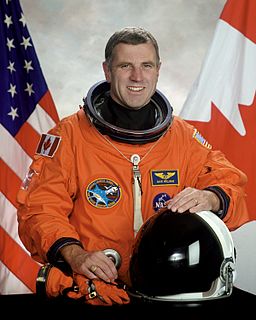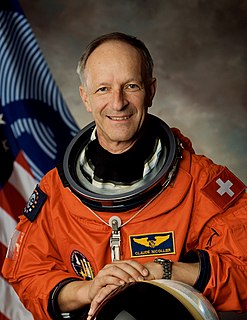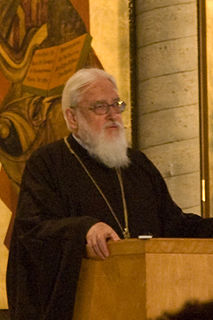A Quote by Scott Kelly
This year-in-space mission was a profound challenge for all involved, and it gave me a unique perspective and a lot of time to reflect on what my next step should be on our continued journey to help further our capabilities in space and on Earth.
Related Quotes
Mankind's journey into space, like every great voyage of discovery, will become part of our unending journey of liberation. In the limitless reaches of space, we will find liberation from tyranny, from scarcity, from ignorance and from war. We will find the means to protect this Earth and to nurture every human life, and to explore the universe. . . .This is our mission, this is our destiny.
If we can avoid disaster for the next two centuries, our species should be safe as we spread into space. If we are the only intellegent beings in the galaxy we should make sure we survive and continue. . . . Our only chance of long-term survival is not to remain inward looking on planet Earth but to spread out into space. We have made remarkable progress in the last hundred years. But if we want to continue beyond the next hundred years, our future is in space.
Mars is the next frontier, what the Wild West was, what America was 500 years ago. It's time to strike out anew....Mars is where the action is for the next thousand years....The characteristic of human nature, and perhaps our simian branch of the family, is curiosity and exploration. When we stop doing that, we won't be humans anymore. I've seen far more in my lifetime than I ever dreamed. Many of our problems on Earth can only be solved by space technology....The next step is in space. It's inevitable.
We should be most careful about retreating from the specific challenge of our age. We should be reluctant to turn our back upon the frontier of this epoch... We cannot be indifferent to space, because the grand slow march of our intelligence has brought us, in our generation, to a point from which we can explore and understand and utilize it. To turn back now would be to deny our history, our capabilities.
We on Earth have just awakened to the great oceans of space and time from which we have emerged. We are the legacy of 15 billion years of cosmic evolution. We have a choice: We can enhance life and come to know the universe that made us, or we can squander our 15 billion-year heritage in meaningless self-destruction. What happens in the first second of the next cosmic year depends on what we do, here and now, with our intelligence and our knowledge of the cosmos.
Flying has changed how we imagine our planet, which we have seen whole from space, so that even the farthest nations are ecological neighbors. It has changed our ideas about time. When you can gird the earth at 1,000 m.p.h., how can you endure the tardiness of a plumber? Most of all, flying has changed our sense of our body, the personal space in which we live, now elastic and swift. I could be in Bombay for afternoon tea if I wished. My body isn't limited by its own weaknesses; it can rush through space.
On my second space walk, I was riding the Canadarm, heading down toward the payload bay of the space shuttle, and I could see the space shuttle highlighted against the Earth in the background, and there was this black, infinite, hostile void of space. I remember looking down at the Earth and thinking, "Beneath me is a 4½-billion-year-old planet, upon which the entire history of the human species has taken place." That was an incredibly humbling moment, and I had a bit of an epiphany.
Our population and our use of the finite resources of planet Earth are growing exponentially, along with our technical ability to change the environment for good or ill. But our genetic code still carries the selfish and aggressive instincts that were of survival advantage in the past. It will be difficult enough to avoid disaster in the next hundred years, let alone the next thousand or million. Our only chance of long term survival, is not to remain inward looking on planet Earth, but to spread out into space.































